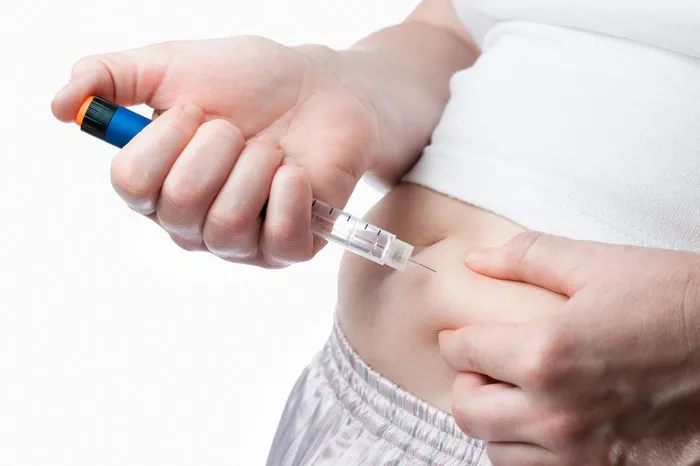Gestational diabetes mellitus (GDM) is a condition characterized by glucose intolerance that is first recognized during pregnancy. It affects a significant number of pregnant women and poses risks to both the mother and the baby. Understanding what happens to gestational diabetes after birth is crucial for new mothers and healthcare providers. This article delves into the postnatal implications of GDM, management strategies, and long-term health considerations.
Postnatal Changes in Glucose Levels
Immediate Postpartum Period
Immediately after childbirth, most women with gestational diabetes experience a significant drop in blood glucose levels. This is because the placenta, which produces hormones that cause insulin resistance, is no longer present. In many cases, blood sugar levels return to normal soon after delivery. However, this is not always the case for all women.
Monitoring Blood Sugar Postpartum
It is essential to monitor blood glucose levels in the postpartum period. Typically, women with GDM undergo a glucose tolerance test (GTT) 6-12 weeks after delivery to assess their glucose metabolism. This test helps determine whether the glucose intolerance has resolved or if the woman has developed type 2 diabetes.
Long-Term Health Risks
Risk of Developing Type 2 Diabetes
Women who have had gestational diabetes are at a significantly higher risk of developing type 2 diabetes later in life. Studies show that approximately 50% of women with GDM will develop type 2 diabetes within 5-10 years post-delivery. This risk necessitates ongoing monitoring and preventive measures.
Cardiovascular Health
GDM is also associated with an increased risk of cardiovascular diseases. Women with a history of gestational diabetes should be aware of this risk and take steps to maintain cardiovascular health through a healthy diet, regular exercise, and routine medical check-ups.
Postpartum Weight Management
Importance of Healthy Weight
Achieving and maintaining a healthy weight postpartum is crucial for women who have had gestational diabetes. Excess weight can increase the risk of developing type 2 diabetes and other metabolic conditions. Weight management strategies should be individualized and sustainable.
Strategies for Weight Management
- Diet: Focus on a balanced diet rich in whole grains, lean proteins, vegetables, and fruits. Avoid high-sugar and high-fat foods.
- Exercise: Incorporate regular physical activity into daily routines. Aim for at least 150 minutes of moderate-intensity exercise per week.
- Breastfeeding: Breastfeeding can help with postpartum weight loss and improve glucose metabolism.
Breastfeeding and Gestational Diabetes
Benefits of Breastfeeding
Breastfeeding offers numerous benefits for both the mother and the baby. For mothers with a history of GDM, breastfeeding can improve glucose metabolism and aid in weight loss. Additionally, it provides optimal nutrition for the baby and can help reduce the risk of obesity and type 2 diabetes in the child.
Breastfeeding Challenges
Women with GDM may face challenges with breastfeeding, including delayed lactogenesis and concerns about blood sugar levels. It is important to provide support and guidance to help these women successfully initiate and continue breastfeeding.
Psychological Impact
Emotional Well-being
The experience of gestational diabetes and the postpartum period can be emotionally challenging. Concerns about long-term health, the baby’s well-being, and lifestyle changes can cause stress and anxiety. Providing psychological support and counseling can help women navigate these challenges.
Postpartum Depression
Women with GDM are at a higher risk of postpartum depression. Regular screening for depressive symptoms and timely interventions are crucial to ensure the mental well-being of new mothers.
Postpartum Follow-Up and Screening
Regular Medical Check-Ups
Regular follow-up appointments with healthcare providers are essential for monitoring health and preventing complications. These appointments should include screening for type 2 diabetes, cardiovascular risk assessment, and guidance on lifestyle modifications.
Screening for Type 2 Diabetes
Women who had gestational diabetes should undergo regular screening for type 2 diabetes. The frequency of screening may vary based on individual risk factors, but it is generally recommended to have a glucose tolerance test every 1-3 years.
Lifestyle Modifications for Long-Term Health
Healthy Eating
Adopting a healthy eating pattern is crucial for preventing type 2 diabetes and maintaining overall health. Focus on:
- Balanced Diet: Include a variety of nutrient-dense foods.
- Portion Control: Monitor portion sizes to avoid overeating.
- Limit Sugary Foods: Reduce the intake of high-sugar foods and beverages.
- Healthy Fats: Choose unsaturated fats over saturated and trans fats.
Physical Activity
Regular physical activity helps improve insulin sensitivity and supports weight management. Aim for a mix of aerobic exercises, strength training, and flexibility exercises.
Stress Management
Managing stress is important for overall health. Techniques such as mindfulness, yoga, and deep breathing exercises can help reduce stress levels.
Family Planning and Future Pregnancies
Preconception Counseling
Women with a history of GDM should seek preconception counseling before planning future pregnancies. This includes optimizing health, achieving a healthy weight, and managing any existing medical conditions.
Risk of Recurrence
The risk of developing gestational diabetes in subsequent pregnancies is higher for women who have had it before. Close monitoring and early intervention in future pregnancies can help manage this risk.
Role of Healthcare Providers
Continuous Support and Education
Healthcare providers play a crucial role in supporting women with a history of GDM. This includes providing education on lifestyle modifications, regular monitoring, and addressing any concerns.
Multidisciplinary Approach
A multidisciplinary approach involving obstetricians, endocrinologists, dietitians, and mental health professionals can provide comprehensive care and support for these women.
See also: What’s the Warning Signs and Symptoms of Gestational Diabetes
Conclusion
Gestational diabetes is a condition with significant implications beyond pregnancy. Postpartum, it is essential to monitor and manage glucose levels, maintain a healthy lifestyle, and undergo regular screening to prevent long-term complications such as type 2 diabetes and cardiovascular diseases. With appropriate support and interventions, women with a history of gestational diabetes can lead healthy lives and minimize their risk of future health issues.
The journey with gestational diabetes does not end with childbirth. Continued vigilance, lifestyle modifications, and support from healthcare providers are key to ensuring the long-term health and well-being of both the mother and her family.
Related topics:
What Week Does Gestational Diabetes Peak?



























